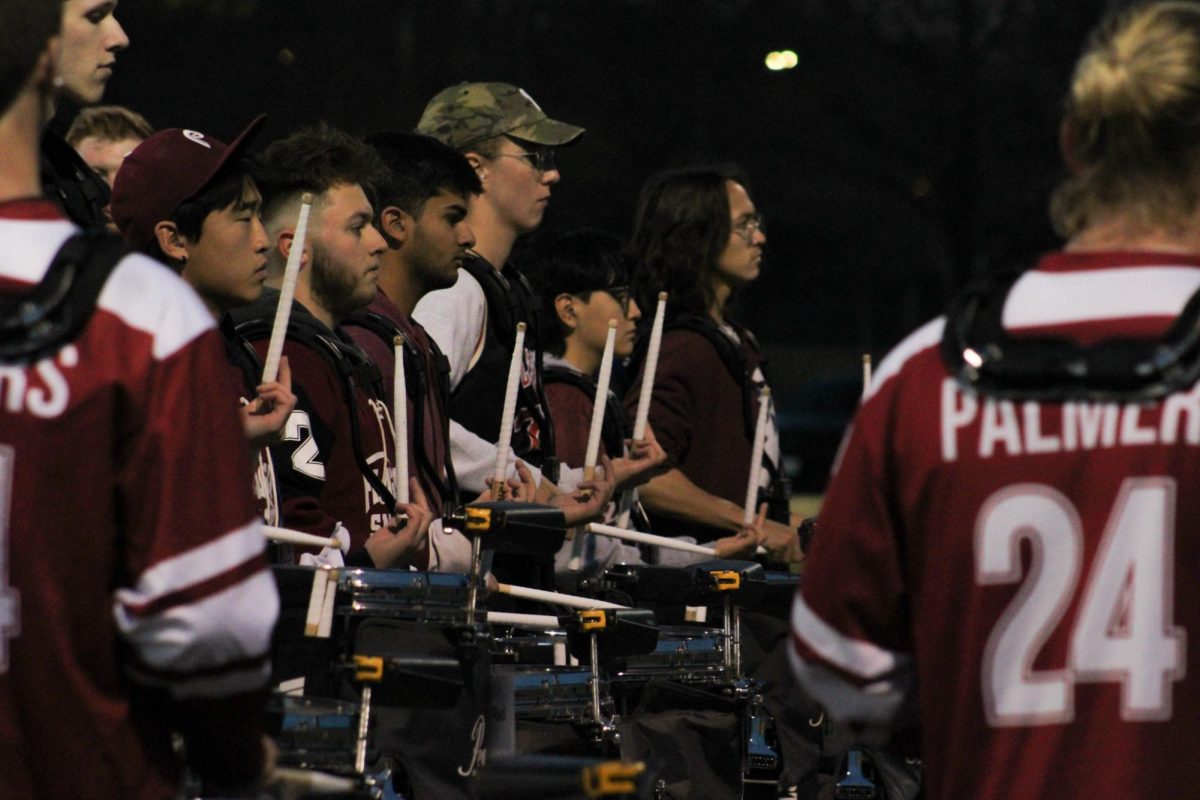
Though I have heard many records that change character quite a bit depending on the circumstances under which one which listens to them, I don’t know if I’ve ever quite heard such an extreme example of that trait as this record.
There is a very good reason, other than paying tribute to his other project – the more dance-infused Vega – that Alan Palomo chose to name his third Neon Indian record “VEGA INTL. Night School.” This is an album that completely comes to life at night; its disco rhythms, wild synthesizer flashes and playful lyrical winks blurring into a senses-numbing, delightful whole.
During the day though, the album’s messy, occasionally counter-productive production, lack of overt pop hooks and length are without their disguises. But Neon Indian’s music has never been without its glitches, and like it did on 2009′s chill-wave masterpiece “Psychic Chasms” and 2011′s seriously underrated “Era Extaña,” these weaker points are often as charming as they are distracting.
One thing about “VEGA INTL. Night School,” released Oct. 16, that cannot be denied is that it is Palomo’s most extroverted record to date. Buried in mesmerizing, but often obscuring, reverb on his first two Neon Indian records, Palomo’s voice bursts out from under the covers on this record.
He can go from the ringleader to the proverbial, angel or devil-on-your-shoulder seamlessly, and sometimes within the space of a single song.
On the beguiling lead single, “Annie,” Palomo blurs the line between the song’s elusive namesake and his own frustrations in pursuing her through a giant, nameless city. Though he’s singing “answering machine” repeatedly in the chorus, the listener can practically hear Palomo forming the name “Annie” on his lips, before talking instead about his inability to reach her, or find peace until he can
Through the warped, angular funk of “Street Level,” Palomo cuts a straight path, exclaiming “we’re just trying to survive the night.” It’s almost as if he is reacting to the gleeful instrumental debauchery taking place all around him, with squelching beats and unpredictable melodic outbursts constantly battling for center stage.
“The Glitzy Hive” exists in another time, merging the cocky genius of Prince’s earliest mega-hits with the hedonism of late ‘70s to early ‘80s disco. It’s a song that’s fun, optimistic and smart enough to see through its own magnetism, but at the same time is not quite ready to acknowledge that there might be consequences to its actions.
On “Slumlord,” its immediate sequel “Slumlord’s Re-Lease” and the bass-heavy “Techno Clique,” the night/day difference in the experience of “VEGA INTL. Night School” is at its most profound. During the day, this trio of songs sounds sluggish, taking the album’s wild but focused atmosphere and tossing it away temporarily. But, when listening to the album at night, this segment of the album feels cathartic, as if the previous 30 minutes or so was merely a build-up for this crucial mid-album release.
Similarly, the slow-motion bass lines and glacial tempos of following track, the six-and-a-half minute “Baby’s Eyes,” are more dazzling at night than they are a bit repetitive, as they can feel during sunlight hours.
But, Palomo saves the album’s most unifying moment for last. “News from the Sun (live bootleg),” is triumphant regardless of the time of day. Taking the Prince vibes that dot “VEGA INTL.” to a scarcely fathomable extreme, Palomo unleashes a beauty of grandiose pop worthy of Prince’s mid ‘80s heyday. The cheering crowd of thousands the listener hears toward the end of the song doesn’t seem real, given Neon Indian’s level (or lack thereof,) of major commercial success to date.
But as Palomo leads the song, and the album, around for one last victory lap with these real or imagined thousands at his back, it doesn’t really matter. The atmosphere of “VEGA INTL. Night School” may often be superficial, but the skill in its construction is anything but. If you’re not pre-occupied with scrutinizing its less-flattering details, you will have a difficult time finding an album that’s more liberating than this one.
Jackson Maxwell can be reached at [email protected]


















